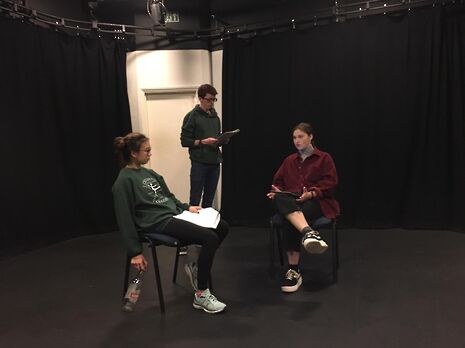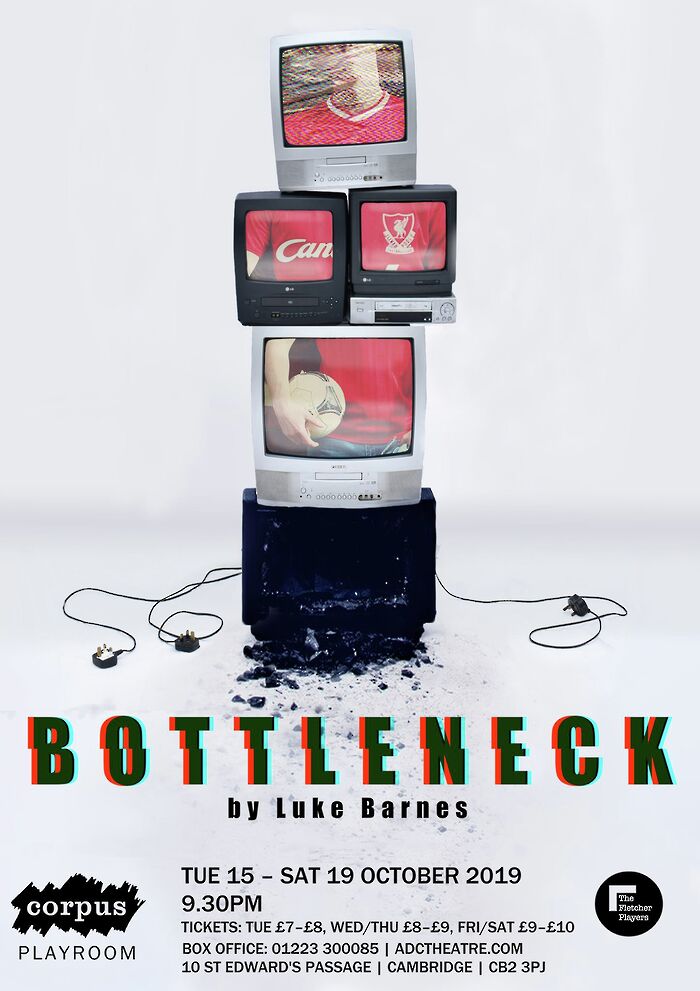Telling a story like mine, with truth and tealights
Cerian Craske discusses the process of writing her play Electric Candles, and watching it come together.

One thing I think is experienced by lots of women who like women is the first realisation that other girls might see you differently if you like girls – you feel as though you’re no longer one of them, and you’re suddenly on the outside looking in. You feel pressure not to be an equivalent to the ‘male gaze’ you’re already aware of, and you feel like you have to keep parts of your sexuality away from your female friends so that they’ll still see you as a friend, rather than a threat. Later on, there was a moment when I rediscovered female closeness: the harmless, necessary tactility I’d given up for so long. Love between friends is something I was afraid of losing, and I wanted to portray that in this play – two girls who love girls and love each other, but as friends.
I wrote Electric Candles in response to a piece of criticism I received after my play at the Downing Festival of New Writing last year, in which I was asked why I hadn’t written about female LGBT+ experiences. I realised I had only been exploring traditional male narratives rather than ideas closer to me because my own experiences meant too much to me. I’d avoided writing characters I could properly relate to because I didn’t want to reveal myself to other people. This felt like something I should change, so instead of revising for prelims as much as I probably should have, I sat down to write a play about being a woman attracted to women, and how this affects your life.
“I’d avoided writing characters I could properly relate to because I didn’t want to reveal myself to other people. This felt like something I should change”
Electric Candles is, at its heart, about trust. We’re so reliant on how other people describe the world to us in order to build up our lives; in order to create a picture of the world, we have to decide who we believe and who we trust to tell us the truth. In the play, Valerie has to decide whether she trusts her boyfriend or her best friend – both long dead and return to tell her their side of the story. The dynamic between the three of them was tense in life and is even more tense in death, and the shifts in power onstage are easy to see. Something I’ve realised in rehearsals, rather than when I actually wrote the play, is that Valerie is the one with the power the whole time. Even though she doesn’t know what’s going to happen, and doesn’t know how she’s supposed to respond, she is still in control. I think it’s easy to write emotional characters who are at the mercy of their situation, but I think the reason I enjoyed writing Valerie so much was because, even though she doesn’t realise it, she has the power to change everything.
I can’t wait for this play to come together in its entirety – the cast and crew have all worked so hard, and it’s amazing to see something I’ve written take on a life of its own, fuelled by so many creative inputs. As I’ve said to the actors, just because I wrote the play doesn’t mean I have a better idea of what’s happening than they do. In fact I’ve been able to be somewhat of a lazy director, because the cast have all slipped so easily into their roles and understand how their characters would react. I keep coming up with notes and then seeing them carried out before I’ve said them, which is incredible. All that’s left is an audience to complete the whole thing – we look forward to seeing you there.
 News / Uni Scout and Guide Club affirms trans inclusion 12 December 2025
News / Uni Scout and Guide Club affirms trans inclusion 12 December 2025 News / Pembroke to convert listed office building into accom9 December 2025
News / Pembroke to convert listed office building into accom9 December 2025 News / Cambridge Vet School gets lifeline year to stay accredited28 November 2025
News / Cambridge Vet School gets lifeline year to stay accredited28 November 2025 Features / Searching for community in queer Cambridge10 December 2025
Features / Searching for community in queer Cambridge10 December 2025 News / Uni redundancy consultation ‘falls short of legal duties’, unions say6 December 2025
News / Uni redundancy consultation ‘falls short of legal duties’, unions say6 December 2025









